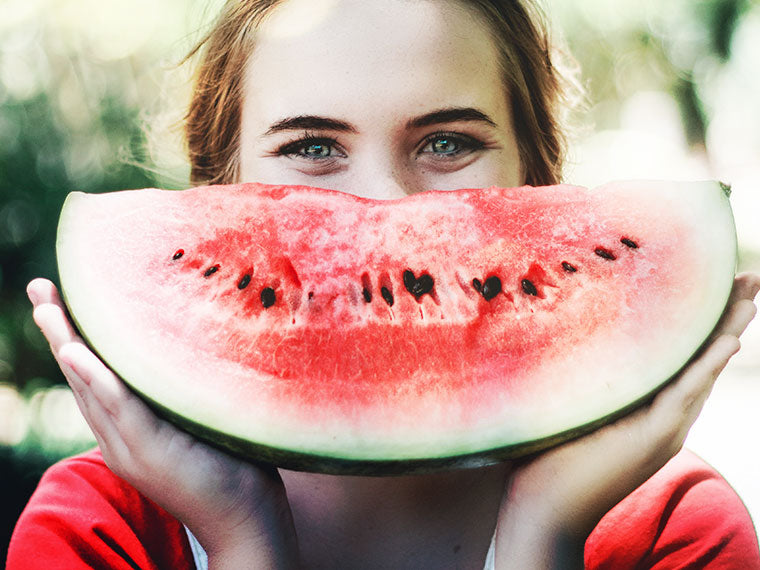Is Gut Health Connected to Mental Health?
Have you ever been so nervous you felt nauseous? Have you had butterflies in your tummy before having to perform or do something new? Do you lose your appetite(or have it increase) if you’re under a lot of stress?
The evidence is beginning to emerge showing a very strong connection between the health of our gut (digestive system) and our mood, but while the research is new, we’ve had a gut feeling about this for a long time.
There are lots of studies happening worldwide showing a strong connection between the health of our gut and that of our mind. And while they are relatively new in the scheme of things, they have had some very interesting results.
When it comes to overall health, most of us know that our gut health matters.
Our body does not know the difference between physical and mental stress and when any type of stress is inflicted on our body, this can lead to inflammation which affects our immune system – 80% of which resides in the gut.
When our immune system is strong, we’re better able to fight off inflammation.
When it comes to our emotional health, our gut also plays a significant role.
We learned about the “little guys” previously and how having more of the good bacteria can help us in times when bad bacteria is being released as a response to stress or in some cases diet.
Research is emerging showing a strong link between gut bacteria and our mind.
These little guys secrete a massive amount of chemicals and in these chemicals are the same substances used to communicate and regulate mood. Things like dopamine, serotonin, and gamma-aminobutyric acid (GABA), all of which affect feelings of anxiety and depression.
In one study, in particular, Stephen Collins, a gastroenterology researcher at McMaster University in Hamilton, Ontario found that the healthy bacteria found in common yoghurt released huge amounts of GABA a neurotransmitter that calms nervous activity. Common anti-anxiety drugs also target GABA receptors.
Also, most of our serotonin is made in our gut. Serotonin is known to be the transmitter that ‘makes us happy’. If your gut is unhealthy, due to stress, poor nutrition or other factors, this can mean that you have less of these feel-good chemicals in the brain.
While most of these studies have been done mainly on mice I’m sure we’ve all experienced instances when anxiety or stress affected our health. In many cases, IBS or other gut issues often increase in severity following a stressful event. But there is still a long way to go before we can pop a probiotic and watch our troubles drift away.
Reducing stress is key to a healthy gut and mindfulness and meditation can be powerful tools. Increasing healthy foods and habits will also make our gut a lot healthier overall and I don’t know about you – but when I feel healthy – I feel good!
What are some foods you can add-in to give your gut some love?
- Probiotic foods and drinks full of good gut bugs! Sauerkraut, kimchi, kombucha, yoghurt, kefir etc.
- Fatty fish such as salmon 2 times a week (or a fish oil supplement)
- Fibre filled whole grain foods such as oats and sourdough bread.
- Potato salad! That’s right, potatoes that have been cooked and cooled form what’s known as ‘resistant starch’ and a great food for our gut bacteria.
- Turmeric to reduce inflammation.
- Lots of veggies and fruit of course.
Overall, An accumulation of love and care for our gut can over time in some cases help reduce some unpleasant physical and emotional symptoms.
It’s no cure-all and you should always talk to your doctor before making any significant changes.
Michelle
References:
https://www.ncbi.nlm.nih.gov/pmc/articles/PMC5641835/
https://www.ncbi.nlm.nih.gov/pmc/articles/PMC3788166/
https://www.ncbi.nlm.nih.gov/pubmed/17151594
disclaimer
About Michelle Yandle
Michelle Yandle is a Health and Nutrition Coach on her way to becoming a Clinical Nutritionist with The Holistic Performance Institute., She is also an international speaker with IISB, successful entrepreneur and two-time author with a focus on traditional diets for health, and nutrition coaching for Empowered Eating™.
Michelle has a bachelor degree from Dalhousie University, Halifax, a graduate degree in education from the University of Maine at Fort Kent, a graduate certificate from the school of Holistic Performance Nutrition and certificates in health and nutrition coaching from the Institute for Integrative Nutrition and Cadence Health in New Zealand.
More about Michelle…

